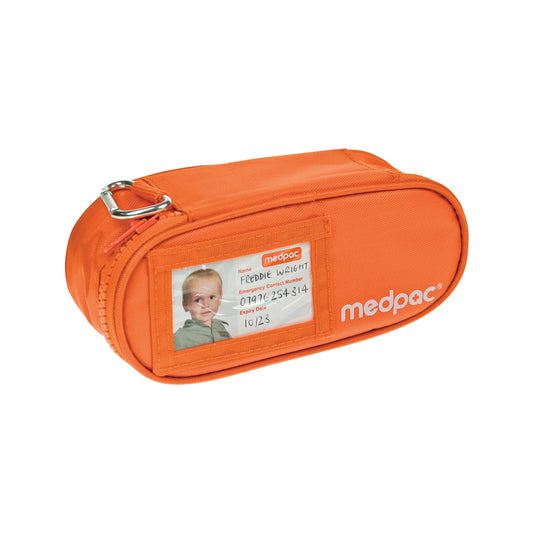![]()
What is type 2 diabetes?
Type 2 diabetes is a chronic condition that leads to the amount of sugar (glucose) in your blood to reach higher than normal levels. Once diagnosed, it usually becomes a condition that you must manage for the rest of your life. There are likely to be changes needed to your everyday diet and you may be required to self-medicate, with helpful products such as our pill organiser helping to plan your daily tablets to regulate your blood sugar levels.
The early signs of type 2 diabetes are not always the easiest to spot. In fact, many people carry on with their lives undiagnosed for many months and years. Failure to recognise the signs and symptoms of type 2 diabetes can have life-threatening consequences, with the condition also linked to heart disease and blindness.
If you think you may be experiencing any of the following early signs or symptoms of type 2 diabetes, it’s important to make an appointment with your GP at the earliest opportunity:
Frequent or excessive urination
The need to visit the toilet more frequently – both day and night – is a condition known as polyuria. It is an early warning sign that the amount of glucose in your blood is too high for your kidneys to manage. When blood sugar levels are too high, the kidneys allow some of the glucose to be transferred into your urine.
Constant thirst
If you continually have the urge to quench your thirst, this is also an early symptom of type 2 diabetes. High levels of glucose in your blood are linked to extreme thirst and the need to drink regularly exacerbates your need to urinate.
Intensified hunger
When your body constantly craves food, this may be because your body’s cells are unable to absorb the glucose in your blood. This leads to your body seeking fuel from other sources, causing you to feel continually hungry. The extra levels of glucose in your system may also be released into your urine, which can also cause unexplained weight loss as your body’s cells lack the fuel they need to sustain you.
Tingling or numbness
Those who experience tingling or numbness in their feet, toes or hands should visit their GP as soon as possible. This may be a sign of diabetic neuropathy, or it may also be a symptom of another neurological condition that requires medical attention.
Blurred vision
Visual impairment is another warning sign of unmanaged type 2 diabetes. Unusually high levels of glucose in your blood can harm the blood vessels within your eyes, causing fluid to drip into your lens and the resulting blurriness. If your type 2 diabetes is not managed quickly, you are at risk of developing diabetic retinopathy which can lead to chronic blindness.
Discoloured areas of skin
It is quite common for those with type 2 diabetes to develop dark patches of skin in the folds of your armpits, neck and groin. This discoloration is due to the excess levels of insulin in your blood – with type 2 diabetics developing a resistance to insulin over time.
Although diagnosis of type 2 diabetes will be a life-changing moment, it doesn’t have to stop you doing what you enjoy. Your GP will work with you to find a medication and dosage that is right for you.
Travelling for holidays or work doesn’t need to be an issue. If you are going away, be sure to pack additional medication. Your diabetes nurse should be able to recommend how much to take in reserve for the length of time you are away. Carrying your medication has never been easier, with our insulated Medpacs and Medpac Actives offering practical solutions to diabetes medication storage to help you lead an active lifestyle.




